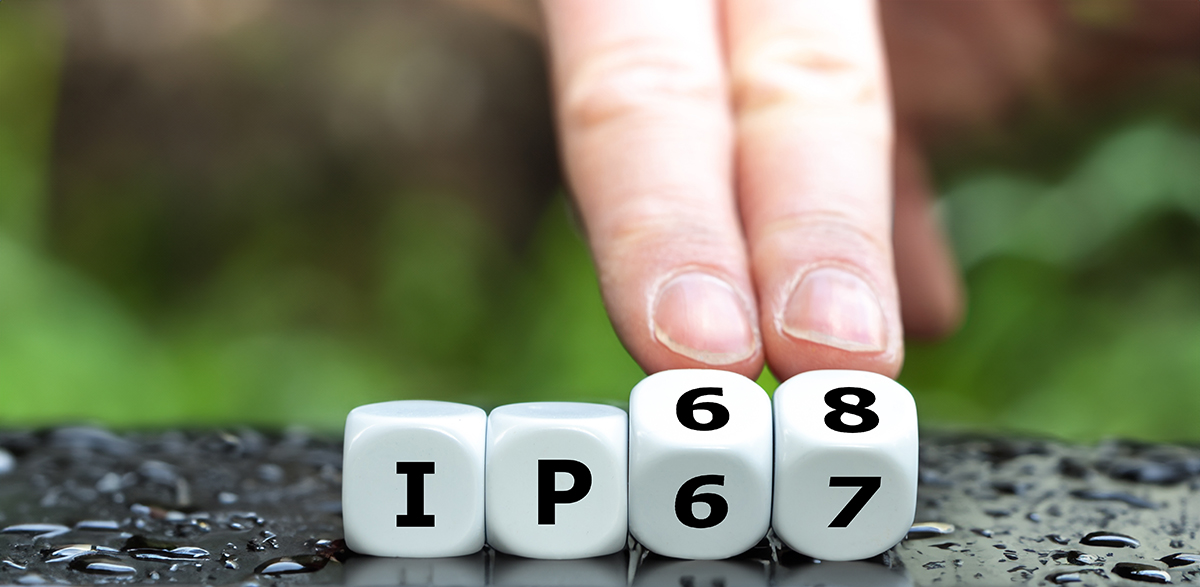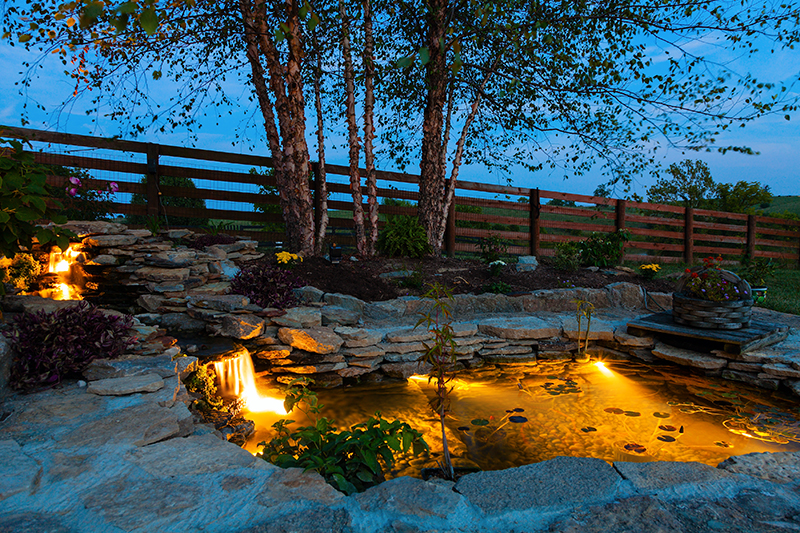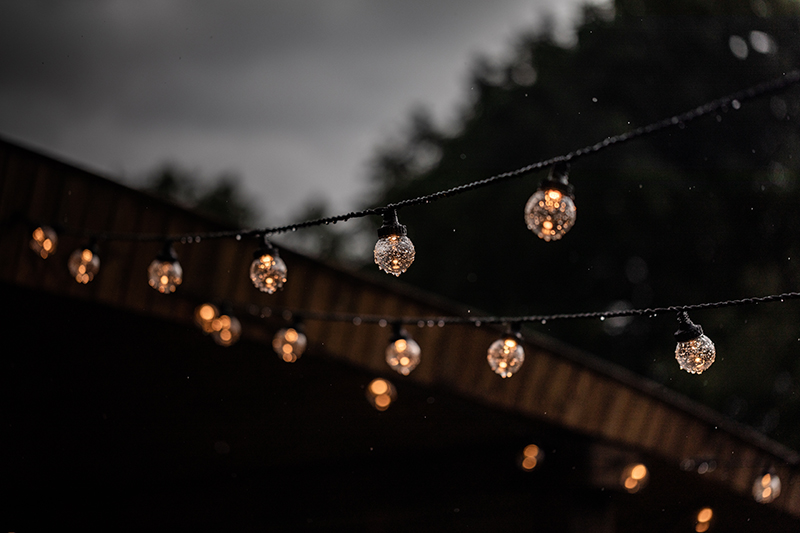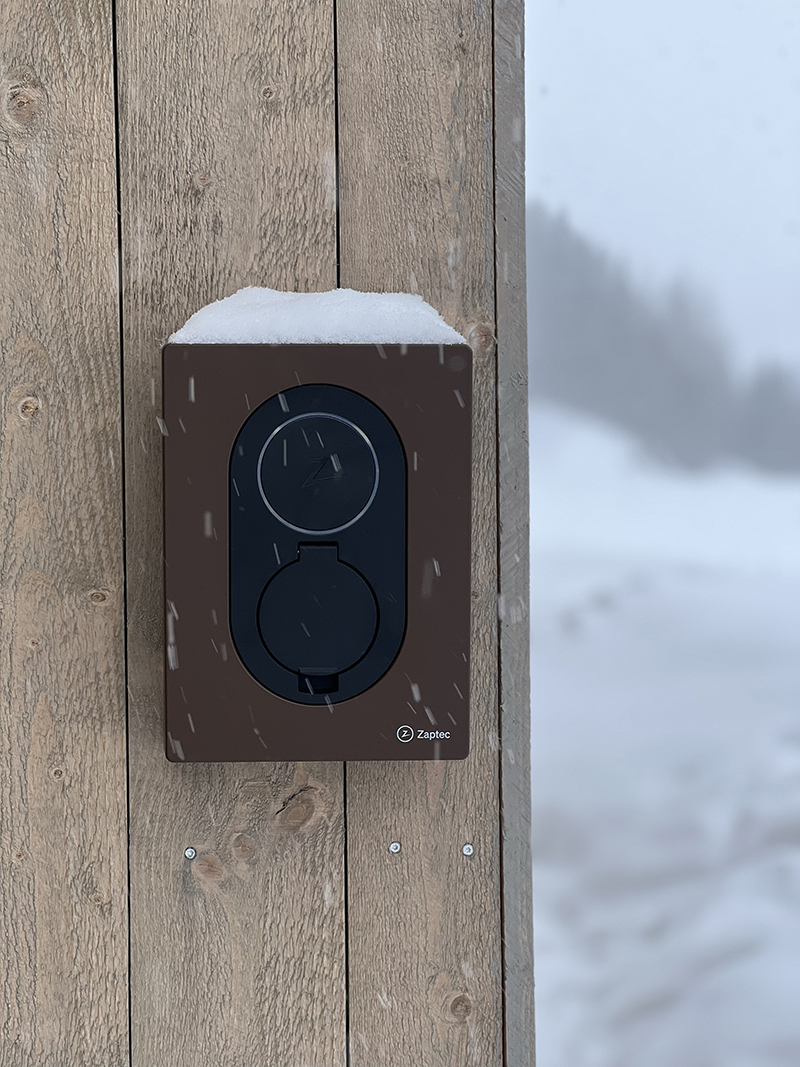Understanding IP Ratings

Published: Friday, 11 July 2025
When choosing electrical products for commercial, industrial, or outdoor use, one of the most important and often overlooked factors is the IP rating. Whether you're installing outdoor lighting, CCTV cameras, or electrical enclosures. Understanding IP ratings helps to ensure you choose the right protection for the job.
In this article, we will explain what an IP rating is, what the numbers mean, and why it matters to you as an installer or an electrician.
What Does “IP Rating” Stand For?
IP stands for Ingress Protection. An IP rating is a standardised system used to classify the level of protection electrical enclosures provide against solids (like dust) and liquids (like water) the rating is defined by the international standard IEC 60529.
Whenever you see an IP rating, it will be followed by two numbers, such as IP44, IP65, or IP68.
Breaking Down the Numbers
Each number in an IP rating has a specific meaning:
The first digit will indicate its protection against solid objects and dust (rated from 0 to 6)
The second digit indicated protection against liquids, mainly water (rated from 0 to 9)
A simplified breakdown is as follows:
| First Digit | Protection Against Solids |
| 0 | No Protection |
| 1 - 4 | Protection from large to small object |
| 5 | Dust protected (limited ingress) |
| 6 | Fully dust tight |
| Second Digit | Protection Against Liquids |
| 0 | No protection |
| 1 - 4 | Drips and splashes |
| 5 | Water jets |
| 6 | Powerful water jets |
| 7 | Temporary immersion (up to 1m) |
| 8 | Continuous immersion (deeper than 1m) |
| 9K | High-pressure, high-temperature jets |
Some ratings may also use a supplementary letter but is usually optional. The letters mean the following:
| Letter | Meaning |
| G | Oil resistant |
| F | Oil resistant |
| H | High voltage apparatus |
| M | Motion during water test |
| S | Stationary during water test |
| W | Weather conditions |

Common IP Ratings Explained
IP44 – Protected against solid objects over 1mm and splashing water. It is common to see these on indoor lights in your bathroom or kitchen.
IP65 – Dust-tight and resistant to low-pressure water jets. These are a great option for your outdoor lighting or wall-mounted enclosures.
IP67 – Dust-tight and can be submerged in water up to 1 metre for a short time. Ideal for outdoor CCTV or marine use.
IP68 – Dust-tight and protected against the long-term immersion in water. This is often used for underground or heavy-duty industrial equipment.
Why IP Ratings Matter
If you were to use the wrong IP rating, it could lead to product failure, safety hazards, or even code violations, for example:
An outdoor installation will require weatherproof fittings, and you will usually use an IP rating of 65 or higher to provide the necessary protection.
Bathrooms and kitchens need to have protection from splash incidents, and the fittings are usually IP44 or above.
For industrial environments will often demand a high resistance to both dust and water ingress.
When you are choosing the right IP rating, it helps ensure that your products have a longer lifespan, they have a safer installation and keeps you compliant with regulations.
Choosing the Right IP Rating for Outdoor Lighting
When installing outdoor lighting, whether it’s garden, car park, or commercial signage – you need fixtures that are able to withstand the elements. The IP ratings you are expected to see are:
The minimum you need for sheltered areas is IP44, which protects the enclosure from splashing water.
For exposed areas that are affected by rain, snow, and dust you will need enclosures of IP65 or IP66, which protect your enclosures against water jets and dust.
If you have a water feature at your property, your submersible garden lights require an IP rating of IP67 and IP68, as it protects the enclosures from immersion.
Please note that you should always check the mounting location as even lighting under canopies could be impacted during wind-driven rain, so we recommend not under-specifying your appliances.

Best IP Ratings for CCTV Cameras: What You Need to Know
CCTV cameras can be required for indoor, outdoor or industrial use; these cameras must remain operational regardless of weather or dust conditions.
CCTV cameras that are only to be used indoors will use IP ratings of 40 or 44 where there is limited moisture or dust exposure.
For general outdoor use, IP65 which is resistant to both rain and dust would be the most suited.
Heavy-duty or exposed environments would be expected to use an IP rating of 66 – 67, as it can withstand high-pressure water and full dust protection.
IP66 usually provides resistance to vandalism and are weatherproof. This provides robust protection in UK outdoor environments.
IP Ratings for Industrial Enclosures: Getting It Right
An industrial environment can be harsh on your enclosures. Dust, dirt, oil, and washdowns - your electrical enclosures need to stand up to it all.
Dusty environments will need a minimum of IP5X but preferably to IP6X.
Light water exposure, such as in machine rooms will use IP55 – IP65.
Frequent washdowns or outdoor placement us IP ratings of 66 and 69K.
Make sure to match your IP ratings to your environment and ensure that they are properly sealed during installation.
IP-Rated EV Charger: What Installers Should Look For
EV charger installations are growing across UK homes, businesses, and car parks. The IP ratings needed will help to ensure reliability and safety.
Domestic wall-mounted units will need an IP rating of at least 54, as it will be resistant to rain, dust, and occasional splashing.
Public or roadside chargers need extra protection from tampering, jets of water, and dust, so they will have an IP rating of 65 – 66.
Underground of harsh outdoor environments should consider an IP67, as it can resist temporary immersion.

If you are ever unsure of what rating to choose, we always recommend a product with a higher IP rating. While it may cost more upfront, it will help you save time, money, and hassle down the line.
Whether you’re installing outdoor lighting, fitting a CCTV system, setting up an EV charger, or working with industrial enclosures, IP ratings play a crucial role in protecting electrical components from dust, water, and the environment. Choosing the correct rating ensures your installations are not only safe and compliant but also reliable and long-lasting.
Understanding the difference between water-resistant and waterproof, means you’ll know the right rating for each setting, and checking proper seals and installation practices can save time, prevent failures, and reduce costly callbacks.
We stock a variety of IP-rated products to suit every environment.

